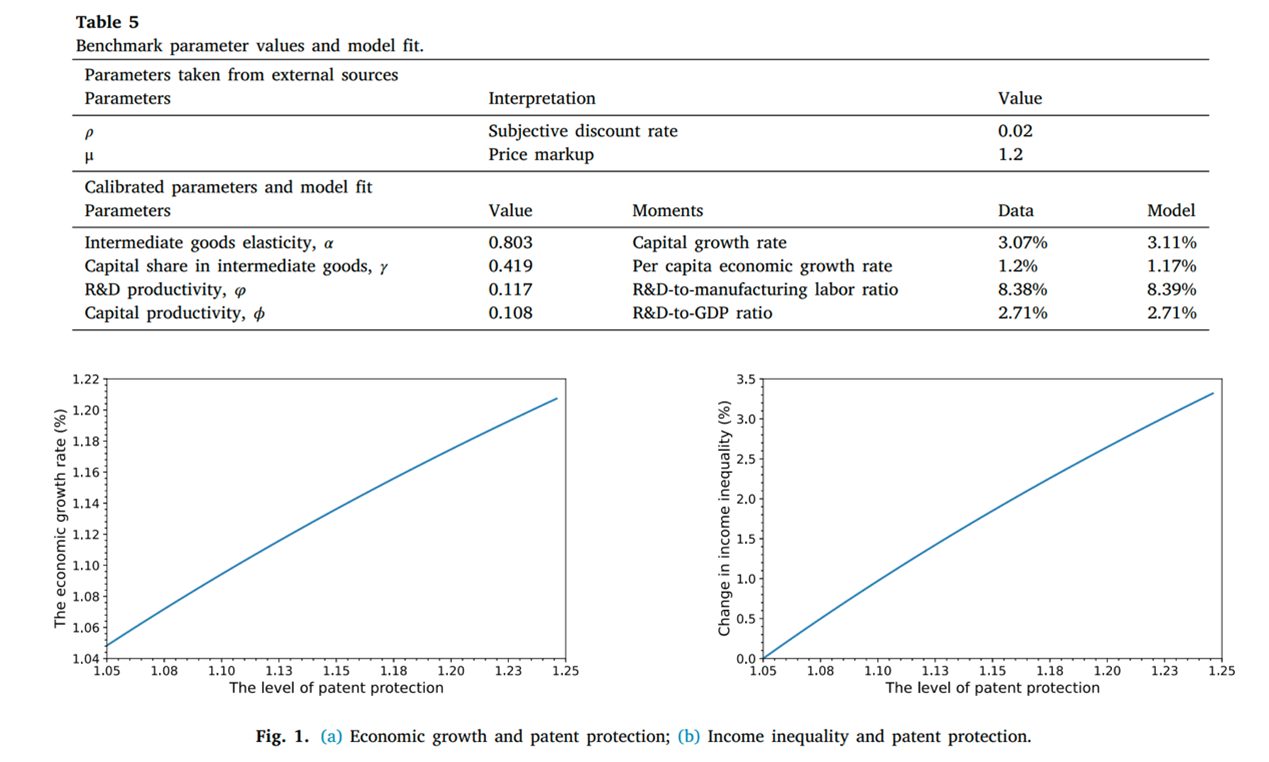
ABSTRACT
Recent evidence suggests that the degrees of both patent protection and income inequality have increased significantly. Existing literature mainly analyzes the patent-inequality relationship in a growth-theoretic framework with a sole growth engine. This study explores the effect of patent policy on income inequality in a variety-expansion model, in which R&D and capital accumulation are non-complementary engines of growth. We find that patent protection affects income inequality only through the interest-rate channel, which depends on the magnitude of R&D productivity relative to capital productivity. If R&D productivity relative to capital is high (low), stronger patent protection intensifies (mitigates) income inequality. Moreover, we calibrate the model to the US economy, and the numerical results support the implications of patent protection on economic growth and income inequality. This result is consistent with our empirical findings using cross-country panel data on OECD countries.
KEYWORDS
Capital accumulation, Economic growth, Income inequality, Patent protection, R&D
JCR CLASSIFICATION
Q1
JEL CLASSIFICATION
D30, O31, O34, O40
Economic Modelling
https://doi.org/10.1016/j.econmod.2023.106280
